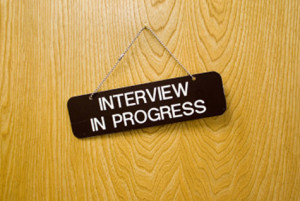In this difficult market, you need to think about your job search habits and focus yourself on a smarter approach.
If you’re like most job seekers, you follow a set of routines in looking for work. You check the ads in the newspaper, or in professional journals related to your field. You write a nice cover letter and enclose your CV. You practise for interview questions. And then you hope for the best.
The key to any successful venture, though, is to understand as much as possible about how the system works. You can’t improve the performance of a car without knowing something about engines, and you can’t hone your job applications without knowing how hiring decisions are being made. I’ll talk generally about how you can leverage a basic understanding of the way applicants are selected, though it is worth finding someone who makes hiring decisions in your industry to get more specific details.
For any position, the person or committee doing the hiring is going to get a stack of cover letters and CVs, and perhaps a portfolio of your work. That first read through the large stack is going to be done quickly. How can you stand out in that initial crowd?
One thing you can do is to be familiar. For 50 years, psychologists have known that people tend to like things that they have been exposed to before. That is why the crowd at a rock concert cheers loudest for the song that has been playing on the radio. That song may not be the best one, but it is the most familiar.
So find a way to make yourself more familiar to the people doing the hiring. Ask them questions. Find an event that the company is sponsoring and volunteer. Take a tour of the company facilities to find out more about what they do and try to get an introduction to people in human resources. The key is to give your application just a little boost of familiarity when people are reading through it. That will help you make the first cut.
Another thing you can do is to work your network. Many first-time job seekers want to get a job on their own to prove that they can do it themselves. But, the real goal is to get a job. A few months after you land the job, nobody will care how you got there. They’ll only be thinking about whether you’re right for the job. So, go out and do some networking. Make use of the alumni from your university. Find every industry related meeting and go to it. Participate. Help to organise events. Use your contacts to make recommendations. Your CV will look a lot better when it comes along with a personal recommendation than it does by itself.
Third, hone your pitch. If you have the chance to talk to someone about your strengths, what will you tell them? Research on smart thinking makes clear that most people will remember roughly three things about any new meeting, book, or encounter. That rule of three applies to what employers will remember about you. So find three things about yourself that you want to highlight. Focus all of your communications on those three elements. Mention them in your cover letter. Highlight those core strengths in your resume. The more effectively you stay on message, the better your chances of landing that job.
Ultimately, knowledge is power. Learning about the way the world works is helpful for finding a job, and it is even more helpful in succeeding after you land that job. So, make yourself familiar, work your network, and hone that pitch. And good luck. Because the last thing to remember is that there is a lot in any job search that is out of your control. So don’t let rejections get you down.
Art Markman is a professor of psychology and marketing at the University of Texas at Austin. He studies the way people think and make decisions. Originally posted on Guardian Careers.

